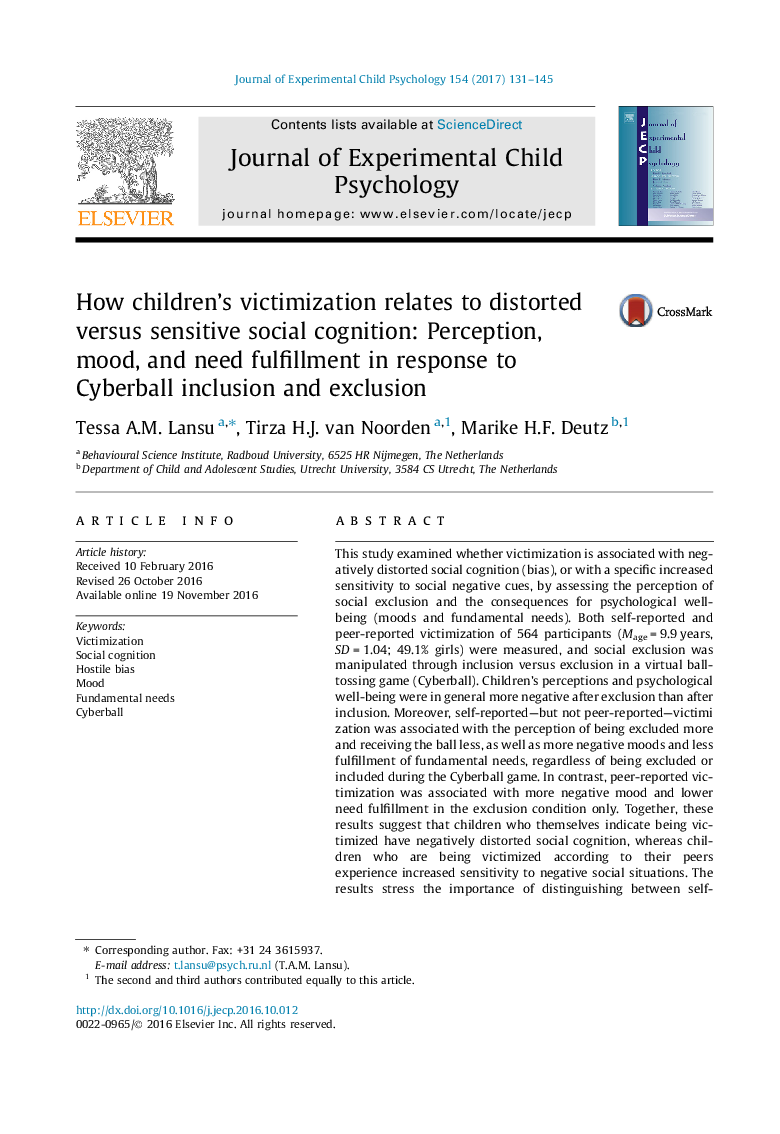| کد مقاله | کد نشریه | سال انتشار | مقاله انگلیسی | نسخه تمام متن |
|---|---|---|---|---|
| 5040036 | 1473458 | 2017 | 15 صفحه PDF | دانلود رایگان |
- Whether victimization relates to biased or sensitive social cognition is examined using a Cyberball paradigm.
- Self- and peer-reported victimization have a different social cognition profile.
- Self-reported victimization is associated with a negativity bias regarding perception and well-being.
- Peer-reported victimization is associated with increased sensitivity regarding well-being.
- The results have implications for social cognition interventions aimed at victims.
This study examined whether victimization is associated with negatively distorted social cognition (bias), or with a specific increased sensitivity to social negative cues, by assessing the perception of social exclusion and the consequences for psychological well-being (moods and fundamental needs). Both self-reported and peer-reported victimization of 564 participants (Mage = 9.9 years, SD = 1.04; 49.1% girls) were measured, and social exclusion was manipulated through inclusion versus exclusion in a virtual ball-tossing game (Cyberball). Children's perceptions and psychological well-being were in general more negative after exclusion than after inclusion. Moreover, self-reported-but not peer-reported-victimization was associated with the perception of being excluded more and receiving the ball less, as well as more negative moods and less fulfillment of fundamental needs, regardless of being excluded or included during the Cyberball game. In contrast, peer-reported victimization was associated with more negative mood and lower need fulfillment in the exclusion condition only. Together, these results suggest that children who themselves indicate being victimized have negatively distorted social cognition, whereas children who are being victimized according to their peers experience increased sensitivity to negative social situations. The results stress the importance of distinguishing between self-reported and peer-reported victimization and have implications for interventions aimed at victimized children's social cognition.
Journal: Journal of Experimental Child Psychology - Volume 154, February 2017, Pages 131-145
